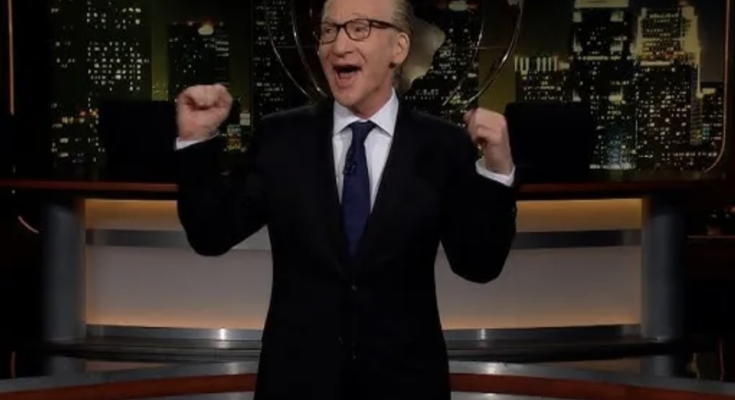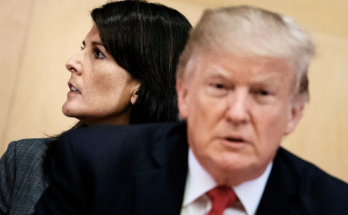When a staunch Democrat like Bill Maher begins raising concerns about Kamala Harris’s campaign, it’s a clear signal that trouble is brewing within the party. As a longtime liberal commentator, Maher has never shied away from voicing critiques of his side, but his latest remarks are especially telling. His focus? Harris’s dismal polling numbers and failure to energize key voter blocs in the crucial final stretch of the 2024 campaign.
On a recent episode of Real Time with Bill Maher, the HBO host laid out a grim picture of the state of Harris’s campaign, pointing to numbers that show her trailing behind previous Democratic candidates. “Biden was 10 points ahead of Trump. Hillary was 6 up. She [Kamala] is only 2.6 up. In Pennsylvania, she’s only up by 1 point. In Michigan, she’s tied,” Maher warned, highlighting her vulnerabilities in battleground states.
Maher’s comments are not the typical punditry you’d expect from a mainstream liberal host. Instead, they reflect a growing unease among Democrats about Harris’s ability to win over voters.
“This week, she did a media blitz, but it hasn’t helped,” Maher pointed out, underscoring her lack of progress despite high-profile efforts to boost her image. When a figure like Maher, who has loyally defended Democratic candidates, starts speaking like this, it’s a clear sign that the party may be in trouble.
What makes Maher’s critique particularly alarming for Democrats is that he’s not just targeting Harris’s poll numbers—he’s calling out her failure to connect with key demographics. “The Democrats are losing male voters,” Maher said, adding that the party’s messaging on issues like masculinity and gender roles has alienated many of these voters. “They don’t want to be lectured. And that’s what liberals do all the time,” Maher argued, noting that men, in particular, are turning away from the Democratic Party.
Maher’s frustration with Harris also extends to her inability to engage working-class voters, a group that has increasingly shifted toward Donald Trump. “Kamala is grossly unqualified and fails miserably to grasp the issues facing working voters,” one panelist echoed on Maher’s show. This sentiment resonates beyond Maher’s panel; it’s a concern that has been voiced by Democrats privately for months.
What’s even more concerning for the left is that Maher isn’t alone in sounding the alarm. Poll after poll has shown that Harris’s popularity is low, especially compared to Joe Biden’s numbers in 2020.
Maher highlighted these troubling trends, noting that while Biden won comfortably in states like Pennsylvania and Michigan, Harris is now struggling to maintain a slim lead. “If Biden was up 7 in Pennsylvania, and she’s only up 1, what does that say?” Maher asked rhetorically.
The broader issue at play here is the Democrats’ inability to connect with ordinary Americans on kitchen table issues. Harris’s campaign, in particular, has struggled to break through on matters like the economy, jobs, and healthcare—issues that voters care about most.
Instead, Maher suggests, the Democrats have been caught up in cultural battles that have alienated key segments of the electorate. “Voters don’t want to be told how to think,” Maher emphasized, blasting at the elitist tone often adopted by the party.
Maher also noted that Harris’s identity as a woman of color, while often celebrated by progressives, has not shielded her from criticism—nor should it. “They’ve tried to say the problem is that she’s a woman of color, but the problem is deeper than that,” Maher said. “It’s about her policies, her failure to resonate with working people, and her inability to energize the base.”
Adding to the alarm, Maher pointed out that Harris’s campaign has been plagued by frequent gaffes and tone-deaf messaging. Even after pouring millions into media efforts and public appearances, she’s failed to improve her standing among voters. “She’s raised over a billion and can’t break away from Trump,” Maher remarked, expressing disbelief at the lack of results from her massive fundraising efforts.
For Democrats, Maher’s comments are a stark reminder of the party’s broader challenges heading into the 2024 election. Harris was supposed to be the candidate who could rally the progressive base, while also appealing to moderate voters. Instead, her campaign has floundered, and even loyal liberals like Maher are publicly airing their doubts.
What’s especially troubling for Harris is that this criticism is not from the right but from within her party.
When figures like Maher start voicing concerns, it reflects a growing sense of anxiety among Democrats that Harris might not have what it takes to beat Trump. And with election day fast approaching, time is running out for her to turn things around.
Maher concluded, “If Harris can’t connect with voters on the most basic issues—jobs, the economy, security—then the Democrats have a real problem.” For now, it seems, that problem is growing larger by the day.



